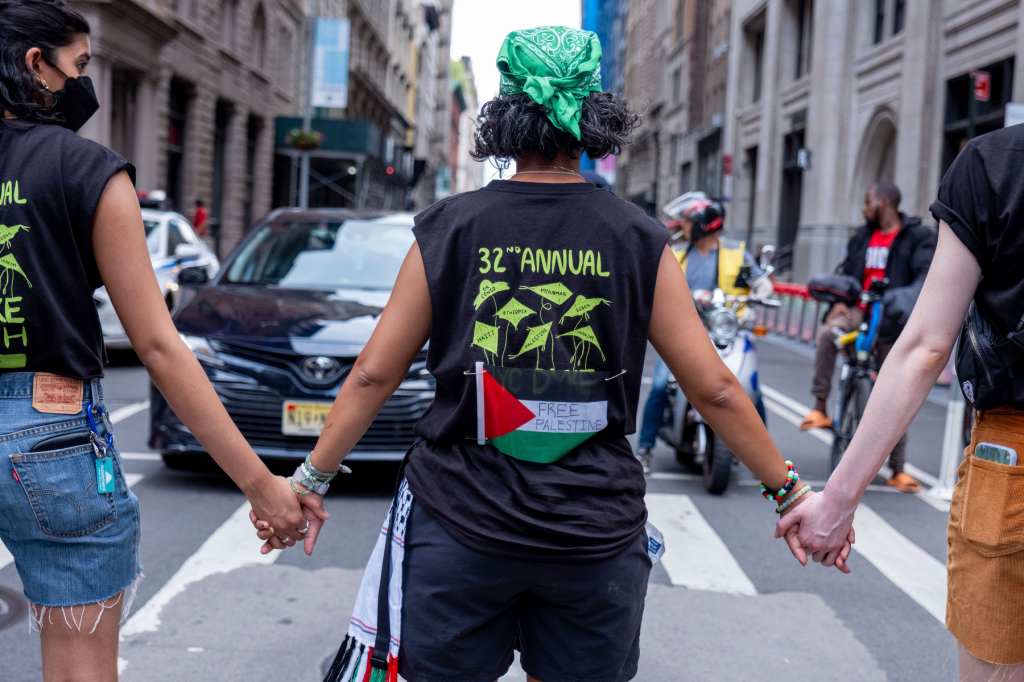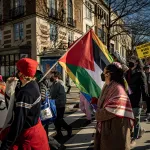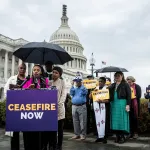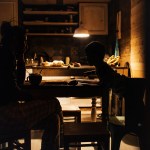The Dyke March has been kicking off every year in New York City for 31 years as a kind of antidote to the traditional and often corporate Pride Parade, held at the end of June. Its focus on women and trans people and its resistance to advertising has given it a more political edge: It’s more of a protest than a party, and straight people tend not to go.
But it is teetering on the edge of becoming a victim of its internal politics.
Since Hamas militants invaded Israel on October 7, 2023 — killing nearly 1,200 people, kidnapping more than 200 and triggering a violent counteroffensive that has left more than 50,000 Palestinians dead — march organizers have argued over whether Zionists and symbols associated with Israel have a place in the march. The disagreement has reached a boiling point that threatens to fracture the event and symbolizes a larger reckoning happening in queer circles throughout the nation.
Earlier this year, the Dyke March organizing committee announced that it was banning Zionists from participating in the event. Exactly what the ban means and how it should be interpreted has been hotly debated. Zionism can mean many things to different people, but in its most basic sense, it is a movement to establish a Jewish homeland in Israel.
Some have hailed the policy as a step toward providing a safer space for queer Muslims. Others have said its vagueness risks shutting out Jewish queers who might otherwise align themselves with the spirit and intent of the march.
The rift has highlighted long-simmering tensions that have sometimes turned personal.
“It’s really, it’s heartbreaking at times,” said Jodi Kreines, who has been organizing the march for four years.
Kreines still vividly recalls the magic of her first march in 2007. Fifth Avenue was packed with women and queer people that Saturday afternoon; she felt like she was standing in an episode of “The L Word,” the television series about the lives of lesbians and bisexual women in Los Angeles. Marriage equality wasn’t legal yet, but, Kreines said, she had never felt more free.
Over the years, Dyke March New York City has grappled with different political stances, according to Valarie Walker, who was one the first organizers to attend the Lesbian Avengers, the group that started the city’s Dyke March in the 1990s. The intention was to gather as many “dykes” across identities as possible, Walker said.
“We are visible, we are united, topless, elderly, able-bodied and less so, pierced, not pierced, adorably, tattooed completely, some with a sun bonnet,” Walker said.
“We’re all those things, and we put away other things to celebrate this aspect of ourselves, and that’s always been super, because we can’t draw a line without alienating others. It’s as much your Dyke March as it is my Dyke March.”
Today, a lot has changed for many who have come to love the march, now in its 32nd year. The event, which offers a more feminist alternative to the Pride Parade, is in the midst of a particularly painful growth point.
Chicago, Boston and many other cities host their own versions of the Dyke March, each of them organized independently from one another. Unlike the New York City Pride Parade, the marches flood the streets without a permit.
D, who is Muslim and has been organizing the New York Dyke March for three years, said they have experienced discrimination at past Dyke March events.
“Someone yelled at me last year that I will be dead in Gaza,” said D, whom The 19th is identifying only by a first initial because they fear their immigration status could make them a target of the Trump administration. “And then someone else came up and was like, ‘Oh, like, what about the victims of sexual abuse on October 7?’ … So that’s definitely the behavior that we don’t want tolerated at the Dyke March.”

In part due to these types of experiences, organizers felt strongly about making a statement this year that the march stood firmly for liberation and against all forms of genocide.
But not everyone has found the statement liberatory. Nate Shalev, who joined the organizing committee of Dyke March a decade ago, resigned last year amid discussions of barring Zionists. Shalev is Jewish and married to an Israeli.
“There’s this understanding, then, of Zionism and by proxy, a lot of Jewish identities being placed in the unsafe bucket because of that,” Shalev told The 19th. “The way that most Jews understand the conversation around Zionism is just the movement to establish a homeland for Jews in the historical land. It’s a movement of liberation and self-determination. It’s not at the expense of anyone or at the subjugation of Palestinians or not even, I would say, historically, in the way that Zionism had been enacted.”
Tala Manassah, a queer Palestinian who is married to a Jewish person and raising a Jewish child, does not see Zionism the same way.
“I actually think saying, you know, Zionists aren’t welcome, it’s like, ‘Well, neither are other kinds of white supremacists,’” Manassah said. “We’ve got a term for it, right? It’s ‘progressive, except for Palestine.’ So you’ve got folks that believe in basically every other progressive cause, but somehow when we say, ‘Now you have to be consistent about Israeli state violence, and about the preciousness of Palestinian lives in line with the preciousness of any other lives,’ the gear screeches to a halt.”
Part of the turmoil surrounding the new policy appears to be lack of clarity.
One key question is if those attending with Israeli flags would be in violation of the policy. Organizers have said they would not be asked to leave. Shalev believes the policy implies they would be.
D said there is no clear test for who belongs and who does not, that the event is meant to focus on Palestinian liberation, not on excluding any group of people.
“It’s kind of like a tricky line, like, how do you determine someone’s Zionist or not?” D said. “Like, that’s obviously antisemitic.”
Manassah challenges attendees to consider the outsized harms that have come to Palestinians worldwide as they consider how to show up at the march.
“The most important voices to platform are the voices of those who are most impacted,” Manassah said. “I’m not interested in telling a trans person what symbols make them feel comfortable or uncomfortable. If they tell me that something makes them uncomfortable and something makes them feel unsafe, I’m just not going to bring it.”
Yuval David, an LGBTQ+ actor and Jewish advocate, said the debate within Dyke March represents larger fissures in queer spaces. He worries that queer Jews are being pressured into a limited set of political beliefs and ideologies.
“It’s OK for them to be conservative or progressive, liberal or traditional, that we all have a place within the LGBTQ community,” David said.
Kreines has worried about that, too.
The new policy bothers her. But despite having reservations about it, she has stayed on the organizing committee, working alongside D, answering for the policy and planning for June. Kreines recognizes that the march has historically failed many communities of color and still has work to do. Even if this policy isn’t perfect to her, she still wants to do everything she can to make this year’s march as inclusive and wonderful as her first one in 2007.
“We get over 50 wheelchairs for dykes that may need them during the march,” said Kreines. “How are we protecting the most vulnerable people on the day of? For me, it’s not via social media posts. It’s what’s actually happening logistically on the day of, and that’s something I’ll still stand by.”





